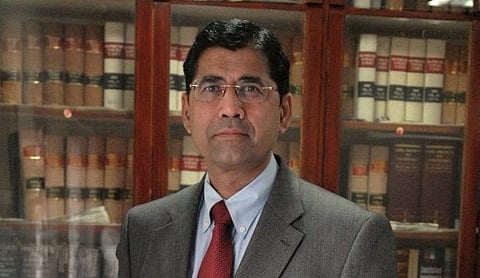
- News
- Columns
- Interviews
- Law Firms
- Apprentice Lawyer
- Legal Jobs
- हिंदी
- ಕನ್ನಡ

Arvind Datar
The provisions relating to the GST Appellate Tribunal are contained in sections 109 to 116 of the Central Goods and Services Tax Act, 2017 (CGST Act). Surprisingly, the qualification required for a Judicial Member has excluded advocates and the qualification for a Technical Member has excluded Chartered Accountants whereas these professionals were always entitled to be selected as either judicial member or technical member respectively in the earlier Tax Tribunals.
There is no explanation for excluding advocates from being selected as Judicial Members. This is a serious infirmity and renders section 110(1)(b) liable to be struck down as unconstitutional.
The other fatal flaw is contained in section 109 which contemplates a National Bench at New Delhi and Regional Benches situated in different States and Union Territories.
In Union of India v. R. Gandhi, (2010) 11 SCC 1, the Supreme Court expressly held as follows:
“(xiii) Two-member Benches of the Tribunal should always have a judicial member. Whenever any larger or special Benches are constituted, the number of technical members shall not exceed the judicial members.”
It is regrettable and unfortunate that despite this mandatory requirement specified by a Constitution Bench of the Supreme Court, sections 109(3) and 109(4) read as follows:-
(3) The National Bench of the Appellate Tribunal shall be situated at New Delhi which shall be presided over by the President and shall consist of one Technical Member (Centre) and one Technical Member (State).
(4) The Government shall, on the recommendations of the Council, by notification, constitute such number of Regional Benches as may be required and such Regional Benches shall consist of a Judicial Member, one Technical Member (Centre) and one Technical Member (State).
At the National Bench, the President has to be a retired judge of the Supreme Court or a retired Chief Justice of High Court or Judge of High Court for not less than five years. However, he will be in a minority with two technical members who form part of the three-member bench. Similarly, all the Regional Benches will also have judicial members in a minority. The technical members are Revenue Officers from the Centre and States.
In most States, the Authority for Advance Rulings (AAR) in GST is composed of one member from amongst the officers of Central Tax and one member amongst the officers of State Tax. In the recent past, almost every ruling has been against the assessee showing a strong Revenue bias. This is likely to continue in the GST Tribunal which will seriously affect the impartiality of the Tribunal.
The decision of the Madras Bar Association was reaffirmed by another Constitutional Bench in 2014. It will not be possible to get over a Supreme Court judgment by a mere statutory provision. All show cause notices have been held in abeyance and the moment the embargo is lifted, the assessees can expect an avalanche of show cause notices leading to extensive litigation.
In Central Excise and service tax cases, it is well-known that at the adjudicatory stage, the demands in the show cause notices are almost invariably confirmed and the hearing is a mere formality if not a farce. The same will continue with the GST as well. The CESTAT was an impartial Tribunal because it consisted of a judicial member and a technical member and the technical members were never in the majority. Similarly, benches of the ITAT have a judicial and accountant member.
These provisions have already been challenged in some High Courts and it is better that some corrective steps are taken so that a proper Tribunal is constituted in which members of the tax bar have full faith and confidence. As long as the decision of the Supreme Court mandates that the majority of a three-member Tribunal must be judicial members, sections 109(3) and 109(4) of the CGST Act will have to be held as unconstitutional.
The author is a Senior Advocate practicing in the Supreme Court